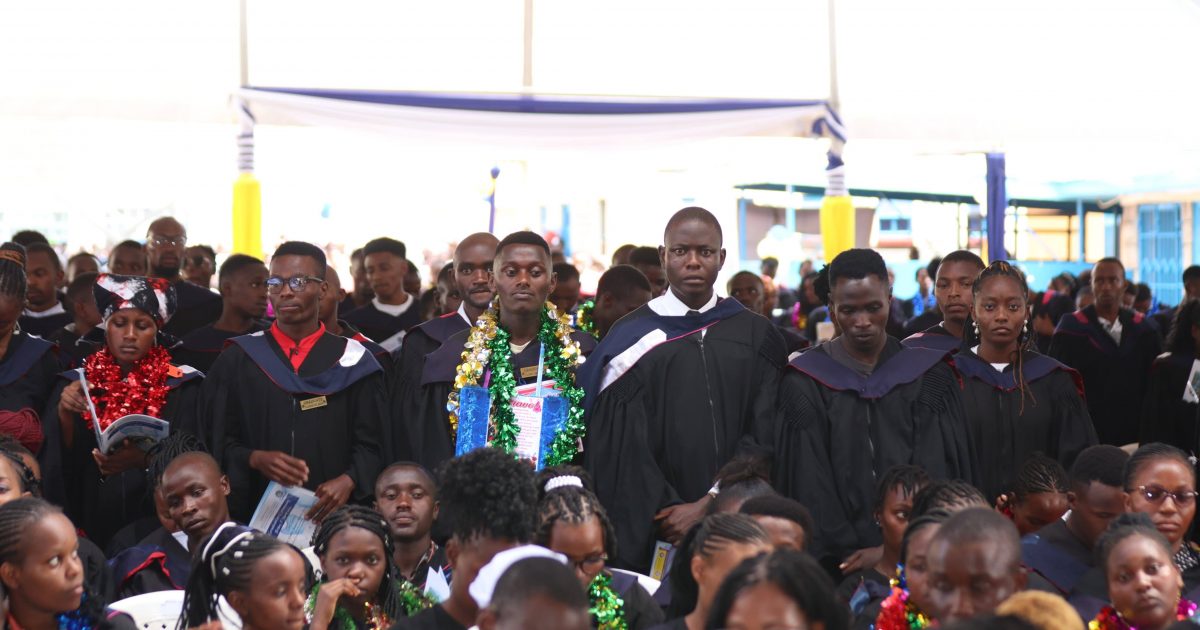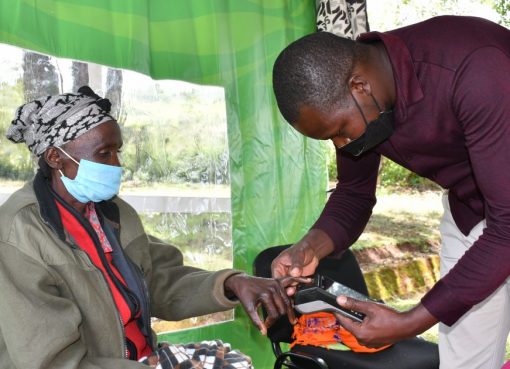Education Cabinet Secretary Ezekiel Machogu has said that the adoption of the Dual Training System in Technical, Vocational Education and Training (TVET) institutions will combat poverty and bridge the skills gap among the youth.
Mr Machogu said the dual training system is a new system that is in line with the Competency-Based Education and Training (CBET) module for TVETs anchored in incorporating practical skills and knowledge from industries to trainees besides theories taught in the classrooms.
The CS said this in a speech read on his behalf by State Department for TVET Principal Secretary Esther Muoria during the 5th Graduation ceremony of Michuki Technical Training Institute in Murang’a County on Friday, where some 1673 grandauds were conferred with Diplomas and Certificates in various TVET disciplines.
Machogu said TVET skilling is one of the most significant tools in combating poverty and bridging the skills gaps and thus the implementation of CBET continues to be key.
“In ensuring that the TVET trainees are fully skilled, the Ministry of Education has continued to ensure that the implementation of CBET takes root in the TVET institutes to address unemployment and skills gap among the youth,” he said.
Machogu said through the curriculum reforms, graduates would largely be exposed to necessary skills, knowledge, and aptitudes required to make sure that they are best placed to join the job market rather than theory-based education.
The CS noted that the Government has partnered with industries and institutions to roll out the Dual Training system to ensure that students train 50 to 70 percent of their time in industry to enable them to gain practical skills and industrial exposure.
“We want to provide our youth with apprenticeships and internships in the industries so that they can acquire skills, have the opportunity to be exposed to actual work conditions, and get hands-on experience and guidance from the already qualified professionals,” said Machogu.
He observed that in the broader concept of global development, the importance of technical and vocational education cannot be overstated and the TVET sector is a key player in fostering innovation in science and technology which are fundamental elements of economic growth.
“The implementation of the new system by the government aims to enhance success and equity to education. This updated system is designed to provide equal opportunities to all youth regardless of their backgrounds,” he said.
The CS urged the graduates to embrace the spirit of innovation and creativity keeping in mind that their education equipped them not only to seek employment but also create opportunities for themselves and others.
“Your graduation marks not just your culmination of your academic journey but the beginning of a new phase where you must put into practice the knowledge and skills that you have learned,” he said, adding that their success is a call to service and contribution to the nation’s development.
On her part, Dr Muoria, reiterated the profound benefits of the dual training system citing that this approach does not only equip our trainees with practical skills, but it also bridges the gap between training and industry exposure.
“The new training modality enables trainees to acquire work ethics and learn the culture of the industry in the process of learning the needed skills,” she said, adding CBET is a key driver in revolutionising the TVET sector and boosting the output of the young workforce.
The Principal Secretary (PS) observed that the department has received a lot of requests from different countries across the globe for young people to go and work in those nations because their populations are aging.
“My department has put in place an industrial liaison database of all the graduates, so that when such opportunities arise, we will be in a position to assist the graduates get jobs in order to empower them economically,” she said.
The PS lauded the institute for launching their strategic plan for the year 2023-2027 which will enable the institution to achieve its vision of bridging the gap between academic, knowledge and practical skills thus producing competent graduates for the ever-evolving industry.
Anne Mbogo, the Chief Principal the Institute said that last year in September, the Institution embraced CBET and started off by offering 41 CBET curriculums in their learning programmes.
The principal said that with regards to the dual training system, the institution has started mapping up industries and partners and they are planning for sensitisation of the stakeholders so that together they can be able to train the students to enhance their employability.
Mbogo divulged that the institution has churned out qualified and competent skilled graduates serving in various sectors of our country over the years, a testament to the trust and confidence parents and sponsors alike have with the school.
“We celebrate our trainers whose tireless efforts have gone to equipping the trainees with the necessary skills and discipline for a holistic TVET graduate,” she said adding that the institute is committed to bridging the gap between academics, knowledge and practical skills.
She said the institute has a current student enrolment of 5179 trainees. The enrolment has been increasing rapidly in the last 4 years owing to support from the government and the institution’s commitment in implementing their strategic plan.
By Anita Omwenga





